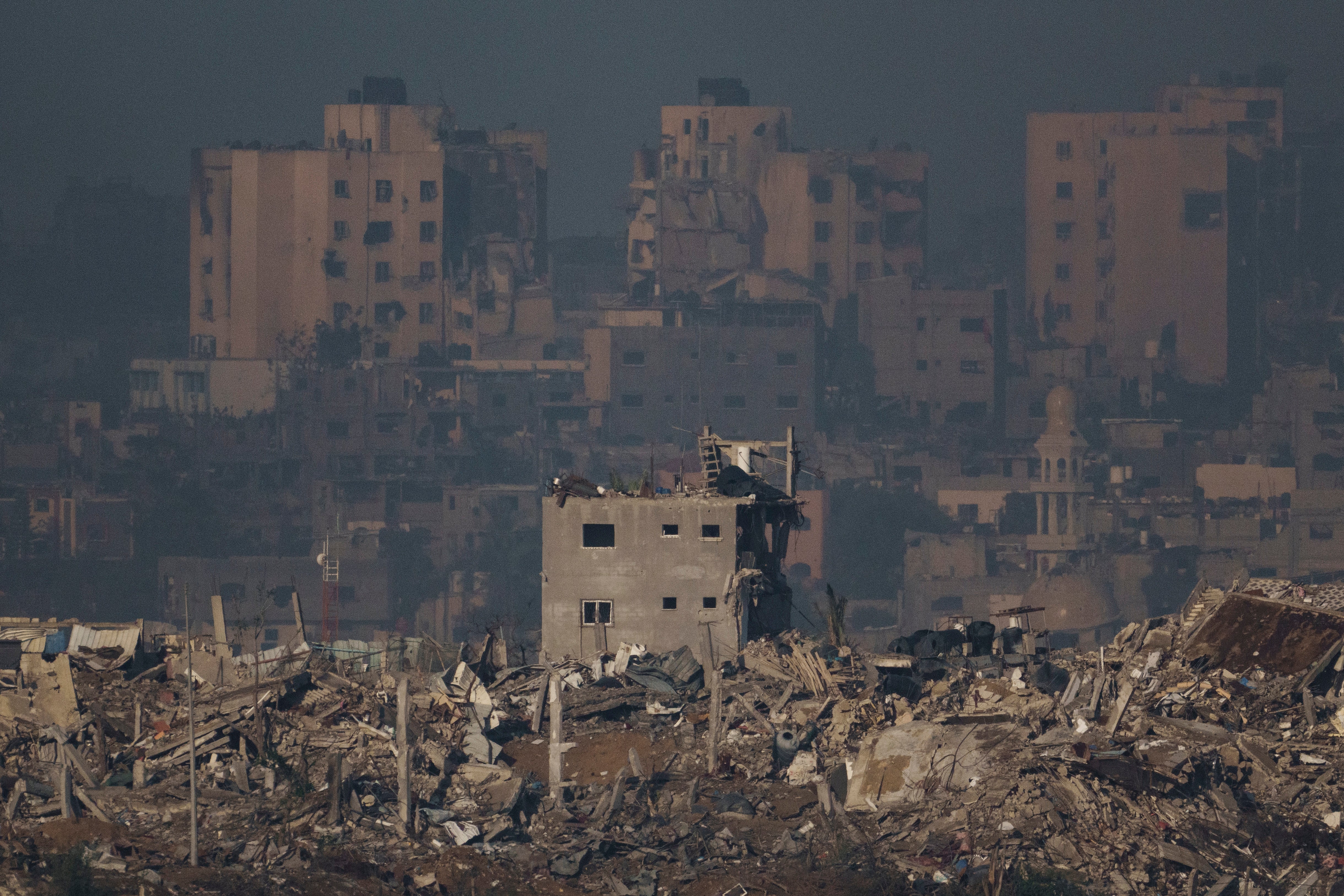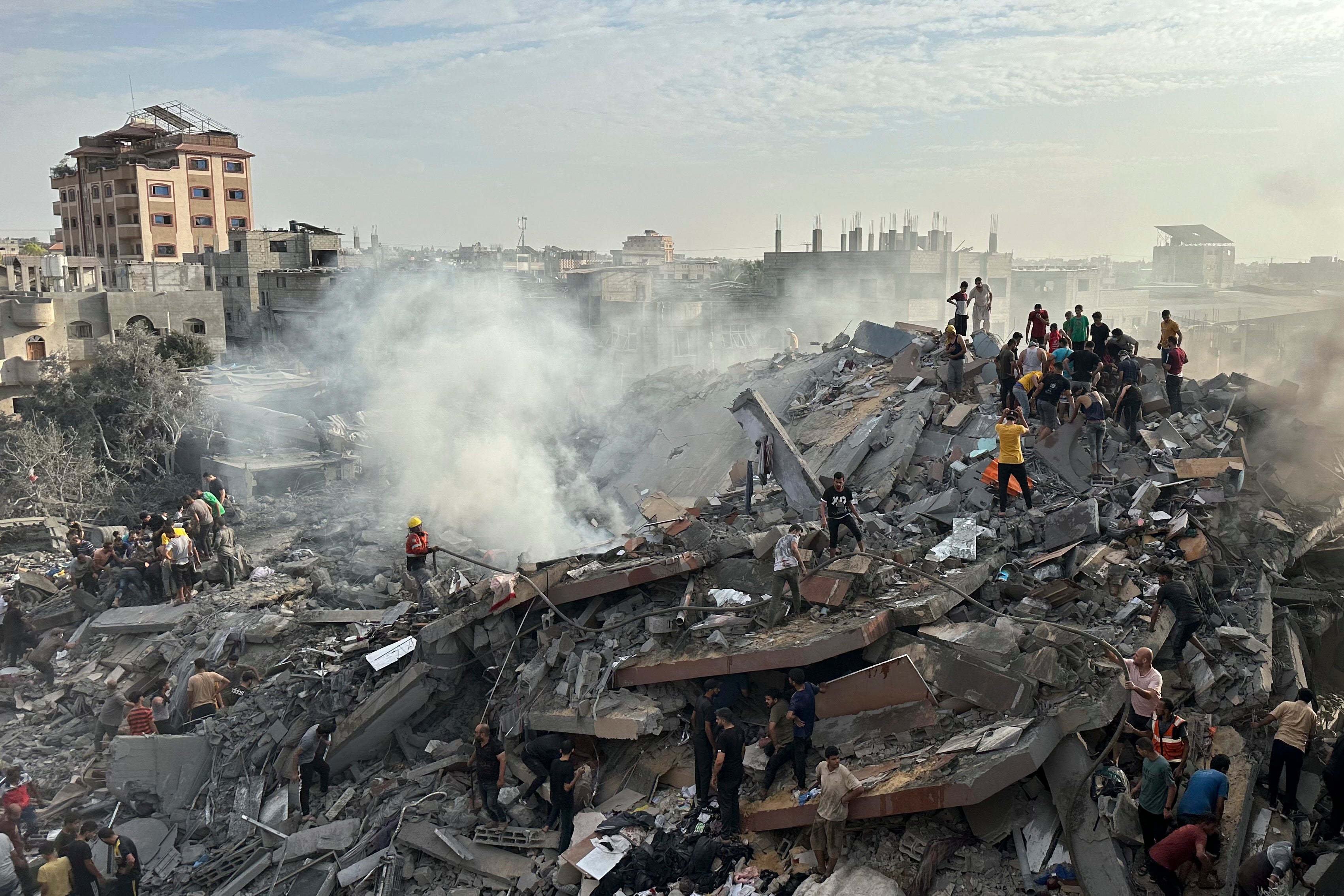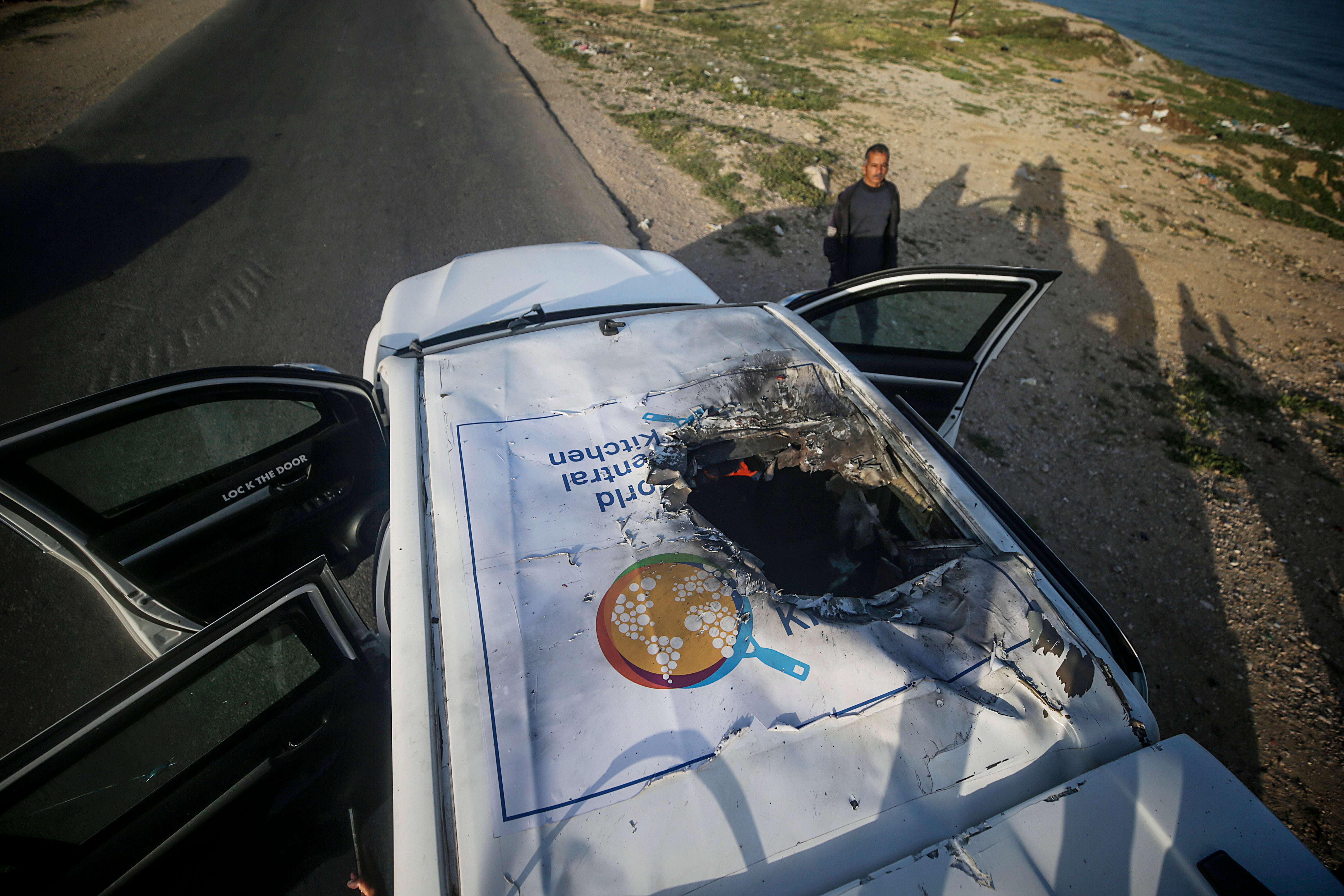Chaos, distrust and indiscipline are undermining Israel’s war, say insiders
Gaza will become ‘another Mogadishu’ as gangs fill the vacuum created by the removal of Hamas, sources tell world affairs editor Kim Sengupta


As Benjamin Netanyahu’s government bows to pressure to open another entry point for aid into Gaza, some Israeli officials have warned that there could be a repeat of the deadly convoy airstrike blunder because of fundamental flaws in the aims and conduct of the war.
Two officers of the Israel Defense Forces – a colonel and a major – are to be dismissed over the attack on vehicles belonging to World Central Kitchen (WCK). The incident killed seven charity employees – three of them British – and drew international condemnation.
But a number of officials, some in the security sphere, have told The Independent that the conditions for what happened were created by a number of factors, including unclear rules of engagement in Gaza; indiscipline and a sense of impunity among soldiers; inflammatory rhetoric from hard-right politicians; and the disdain of some in the military for a defence ministry unit known as Cogat – the Coordination of Government Activities in the Territories – because the liaison group is deemed to be “too soft” on Palestinians.
The belief that Hamas gunmen were present within the WCK convoy and opened fire has been given as one of the reasons behind the IDF’s decision to carry out repeated drone strikes. Israeli officials point out that there is wider confusion and consternation about armed factions operating inside Gaza, with aid being hijacked, adding to the insecurity.
Israel has been encouraging clan militia groups to take over the security vacuum created in areas from which Hamas has been driven out. Armed criminal gangs have formed, identifying themselves as militia. “This is a recipe for turning the place into another Mogadishu,” said a Western diplomat. “These gangs will be looking forward to a sizeable rise in humanitarian supplies coming in.”

There are reports that the Israeli government is planning to award contracts to foreign private security companies – paid for by the international community – to protect humanitarian shipments from looting and hijacking by the criminal gangs proliferating in lawless Gaza.
Officials also point to muted reports of fighters linked to the Palestinian Authority (PA), the rival to Hamas, guarding flour supplies from looting at the Jabaliya refugee camp north of Gaza City last month. One reason Israel has played down the supposed presence of PA fighters, it is suggested, is Benjamin Netanyahu’s repeated declaration that the PA, based in the West Bank, would not be allowed a presence in post-Hamas Gaza.
Meanwhile, little appears to have been learnt from the civilian deaths in Gaza. In December, three Israeli hostages taken by Hamas were gunned down as they approached soldiers unarmed, shirtless, and waving a makeshift flag made from a white shirt, crying out in Hebrew to be rescued.
There have also been numerous instances of civilians being shot by snipers as they approach checkpoints. Drone footage appeared last month of four young Palestinian men, who showed no sign of being armed, being killed by a missile strike as they walked through their shattered neighbourhood. More than 220 humanitarian aid workers have died, even before the WCK killings.
This rise in indiscipline among soldiers is causing deep concern among senior officers. Lieutenant General Herzi Halevi, the IDF’s chief of staff, has publicly stated: “We cannot fight when discipline and our principles are not clear and are not followed. A commander cannot skip instructions without approval if there is no operational and self-evident emergency reason for doing so.”
In response, hard-right finance minister Bezalel Smotrich attacked Lt Gen Halevi and senior officers. “The current IDF high command failed in a colossal way on 7 October and cannot design the future generation of the IDF,” he said. “We support them absolutely to manage the war and win. That, but no more.”
IDF senior commanders are said to be immensely frustrated at the inflammatory rhetoric coming from politicians, including from members of the cabinet. The far-right national security minister Itamar Ben-Gvir praised soldiers after a shooting left 100 civilians dead in a crowd waiting for aid, describing the victims as “a Gazan mob”.

That kind of endorsement, say Israeli officials, encourages aggression among the trigger-happy. “This sort of thing is a deliberate attempt to undermine our attempts to maintain battlefield discipline,” said a serving senior officer.
Soldiers returning from Gaza told Haaretz that local commanders are randomly establishing “kill zones” in which anyone who enters is killed without question. A security official told The Times of Israel that soldiers are “shooting first and asking questions later”.
Cogat has been accused by Palestinians of carrying out repressive measures. But for some Israelis, it had shown naivety in its dealings with Hamas before 7 October as well as in its engagements with the PA in the West Bank, and has thus lost credibility.
Aid agencies say paperwork provided by Cogat to be presented at checkpoints has simply been ignored at times. A reservist soldier who has just returned from Gaza described how even junior officers disregard the agency’s wishes. “The feeling [among officers] was [that Cogat] did not know the risks we were facing, and we decide what to do,” the reservist said. “This is quite common. Some people ... think they are too cosy with international organisations; there’s a lot of mistrust... That’s not going to go away with another crossing opening.”
With starvation spreading, and the lethal toll rising to 33,000, what happens next in Gaza will depend on Israel following through on its promise to allow humanitarian supplies to get in safely. For that to happen effectively, say officials, the government must tackle some key problems.
Subscribe to Independent Premium to bookmark this article
Want to bookmark your favourite articles and stories to read or reference later? Start your Independent Premium subscription today.
Join our commenting forum
Join thought-provoking conversations, follow other Independent readers and see their replies
Comments